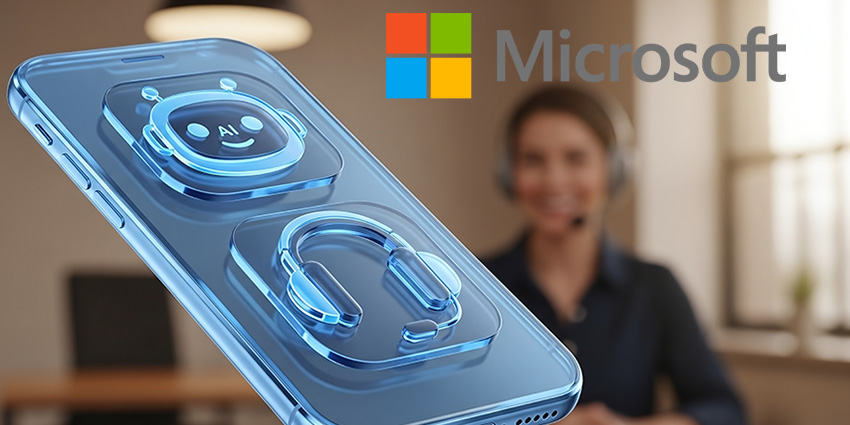The Customer Service Crisis
Endless holds. Scripted chatbots that can't understand the problem. Being bounced from one department to another only to repeat yourself again and again.
Bad customer service is one of the few frustrations that unites nearly every American — and new research shows just how deep the crisis runs.
Research commissioned by Quant found that over half of Americans — 57 percent — describe having 'disastrous' customer service experiences.
Customers no longer care about speed. In fact, only 31 percent said they prioritize it.
Meanwhile, 60 percent of customers said good service means getting their issue resolved accurately.
The Agentic AI Solution
On September 25, Quant — a global leader in agentic intelligence — unveiled their first agentic AI built for customer service.

Unlike generative AI, which powers popular tools like ChatGPT, agentic AI is able to make autonomous decisions.
The intuitive agentic customer care AI agent is one that can communicate naturally via voice or video.
Quant works in various formats — as a phone agent, chat assistant and, in the future, a video avatar that can read tone and expression.
The Vision Behind Quant
Quant was founded by Chetan Dube, a former NYU math professor who has spent almost three decades exploring how AI can automate everyday business processes.
Dube founded IPsoft in 1998, scaling it to $260 million revenue by 2020. His flagship creation, Amelia — an intuitive alternative to clunky chatbots for customer service, sold for $180 million in 2024.
Dube's new venture aims to put an end to the agony of customer service chatbots.
Real-World Applications
In a high stress lost bag scenario with an airline, instead of walking a passenger through a nine-step process across multiple teams to locate your bag, 'Quant can locate and reroute it to them instantly,' said Dube.
'Generative AI only provides you with information. Agentic delivers your bag.'
For healthcare companies, Quant can securely schedule complex treatment appointments without bias or errors that might cause bigger problems.
In quick-service restaurants, Quant can manage over a million pizza orders in real time with more than 90 percent accuracy.
For utility companies, it can identify a vulnerable customer with a medical issue on file and automatically prevent disconnection whilst arranging a payment plan.
Measurable Results
'This is the power of Quant in the moments that matter most, when people are stressed, worried or facing real problems,' Dube said. 'It's where customers are won or lost and where brands either rise or fall.'
'What makes Quant different is the measurable return,' Dube continued.
'We've delivered performance improvements worth more than 40 percent compared to single-digit industry averages and we do it while creating more rewarding work for people, not less.'
Quant, which is already in use by businesses internationally, resolves nearly 77 percent of customer issues; 13 points higher than human agents (64 percent). The customer care AI delivers answers in under five seconds on average.
Early rollouts of Quant with global brands have shown its capabilities: lost bags rerouted automatically, utility customers protected from disconnection, and over a million restaurant orders processed with more than 90 percent accuracy.
The Future of Customer Service
The company is preparing for an agentic future. 'By 2030, we believe customer service will be powered by digital colleagues seamlessly working hand in hand with humans. There is a tsunami of digital change coming. Something that's transformative but unstoppable,' said Dube.
It comes as increasing numbers of companies are using artificial intelligence, prompting fears among some that it could lead to widespread job losses in some sectors.





Comments
Join Our Community
Sign up to share your thoughts, engage with others, and become part of our growing community.
No comments yet
Be the first to share your thoughts and start the conversation!